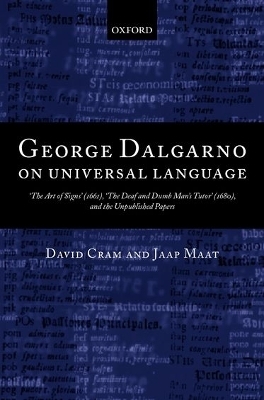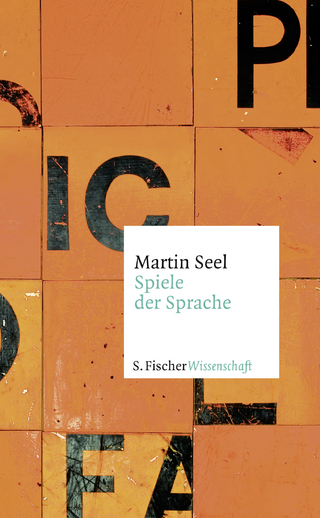
George Dalgarno on Universal Language
Oxford University Press (Verlag)
978-0-19-823732-7 (ISBN)
- Titel ist leider vergriffen;
keine Neuauflage - Artikel merken
George Dalgarno's 'Art of Signs' ('Ars Signorum', 1661) was the first work in the seventeenth century to present a fully elaborated universal language constructed on philosophical principles. It contains a wealth of observations on human language and the nature of representation in general, and the author takes issue with leading philosophers of his day, notably Hobbes and Descartes, on epistemological and logical questions. By including the first complete English translation alongside the Latin, the present edition makes this seminal text accessible to a wider audience.
The text is further elucidated by a previously unpublished autobiographical tract in which Dalgarno describes the development of his ideas, and his discussions with John Wilkins, who eventually was to produce a rival universal language scheme. In this tract Dalgarno provides, in unprecedented detail, a lucid account of the major issues involved in the debate on the structure of a philosophical language.
Further tracts by Dalgarno reprinted here illustrate other facets of his thought. These include a series of broadsheets in which he advertised his scheme; 'The Deaf and Dumb Man's Tutor' (1680) which contains some original observations concerning the teaching of language to the deaf; and a treatise on 'Double Consonants' - one of the earliest treatments of phonotactics.
In bringing together for the first time the full range of Dalgarno's linguistic work - which has strking resonance with modern work in universal grammar and cognitive science - the present volume gives ready access to the ideas of this original and stimulating thinker.
David Cram is a Fellow of Jesus College and Lecturer in General Linguistics at the University of Oxford. His research interests are in lexical semantics and pragmatics, translation theory, and the history of linguistics. He was a founder member of the Henry Sweet Society for the History of Linguistics. He is the author of numerous scholarly articles within the areas of general linguistics, Scottish Gaelic, and the history of linguistics. Jaap Maat works in the Department of Philosophy at the University of Amsterdam. His concern with seventeenth-century universal language schemes arose from his interests in the philosophy of language of the period. He is also interested in the broader history of semantics, logic, and epistemology, as well as in current semantic theory. He has published various articles on seventeenth-century philosophical languages, in particular on Leibniz's concerns with the subject.
TEXTUAL NOTE ; INTRODUCTION ; CHRONOLOGY OF DALGARNO'S LIFE ; PART I: DALGARNO'S FIRST SCHEME ; PART II: THE ART OF SIGNS (1661) ; PART III: THE DEAF AND DUMB MAN'S TUTOR (1680) ; PART IV: DALGARNO'S UNPUBLISHED PAPERS ; PART V: DALGARNO'S CORRESPONDENCE ; REFERENCES ; GLOSSARY
| Erscheint lt. Verlag | 19.7.2001 |
|---|---|
| Zusatzinfo | 4 figures, 3 facsimiles, 1 fold-out table |
| Verlagsort | Oxford |
| Sprache | englisch |
| Maße | 163 x 243 mm |
| Gewicht | 822 g |
| Themenwelt | Geisteswissenschaften ► Philosophie ► Sprachphilosophie |
| Geisteswissenschaften ► Sprach- / Literaturwissenschaft ► Sprachwissenschaft | |
| Naturwissenschaften | |
| Sozialwissenschaften | |
| ISBN-10 | 0-19-823732-4 / 0198237324 |
| ISBN-13 | 978-0-19-823732-7 / 9780198237327 |
| Zustand | Neuware |
| Haben Sie eine Frage zum Produkt? |
aus dem Bereich


